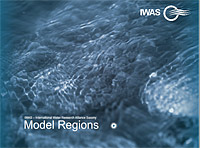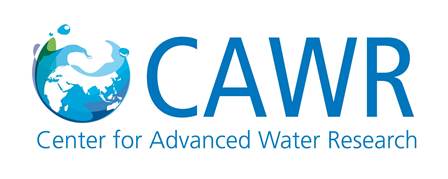Drinking Water Quality and Treatment
Introduction
Lack of sufficient water supply is currently the second largest problem facing the world not only due to climate change and regional droughts, but also population growth and dramatic land use changes. In particular, the main problem of megacities nowadays is the rate of urbanisation which often far exceeds the capacities of the national and local governments to plan and manage the demographic change efficiently and sustainably. One of these cities is Brasília, the capital of Brazil, and its Federal District having now more than two million inhabitants. In the years to come, despite the high annual precipitation level, the extreme differences between dry and rainy seasons together with the above mentioned problems will lead to a drinking water deficit in the District compared with demand.
In order to help overcome difficulties with drinking water supply to the local population, alternative water sources will be considered. One of them can be the lake Paranoá which should allow supplying additionally half a million people. However, due to the water quality of considered resources an advanced treatment technology with a special attention to removal of organic substances and micro-pollutants such as for example pesticides, pharmaceuticals and personal care products, complex agents, as well as heavy metals and microorganisms should be suggested. This technology should take into consideration multiple use of waters of the lake Paranoá (e. g. water sports, waste water discharge and planned uptake for drinking water purposes). Moreover, drinking water treatment and distribution in the DF need to be considered with an integrative approach, taking into account water quality impairments during distribution.
Objectives
- Consider alternative water resources for drinking water supply
- Study the water quality of available resources and define the key parameters for improvement of water quality monitoring (together with the group “Water quality”)
- Study and suggest new/adapted water treatment technologies with a special focus on membrane technologies/adsorption/oxidation processes; application of different/combined coagulants; and dewatering of sludge with high organic content
Participating research groups
- Prof. Dr.-Ing. W. Uhl, Dr. E. Vasyukova; Dresden University of Technology (TUD), Institute of Urban Water Management, Chair of Water Supply Engineering
- K. Neder, F.M.G. Braga, Companhia de Saneamento Ambiental do Distrito Federal – Brasília (CAESB)
- Prof. C. Brandão, Universidade de Brasília (UnB), Department of Civil and Environmental Engineering
Contact
Prof. Dr.-Ing. Wolfgang Uhl
Institute of Urban Water Management
Dresden University of Technology
George-Bähr-Str. 1
D-01062 Dresden
Germany
Phone: +49 (0) 351 463 33 126
![]()
![]() wolfgang.uhl@tu-dresden.de
wolfgang.uhl@tu-dresden.de




.png)
.png)
